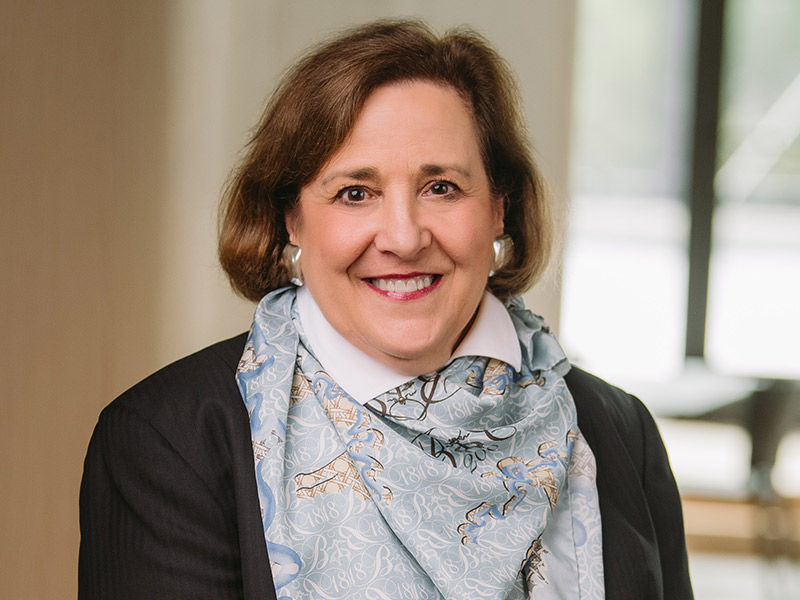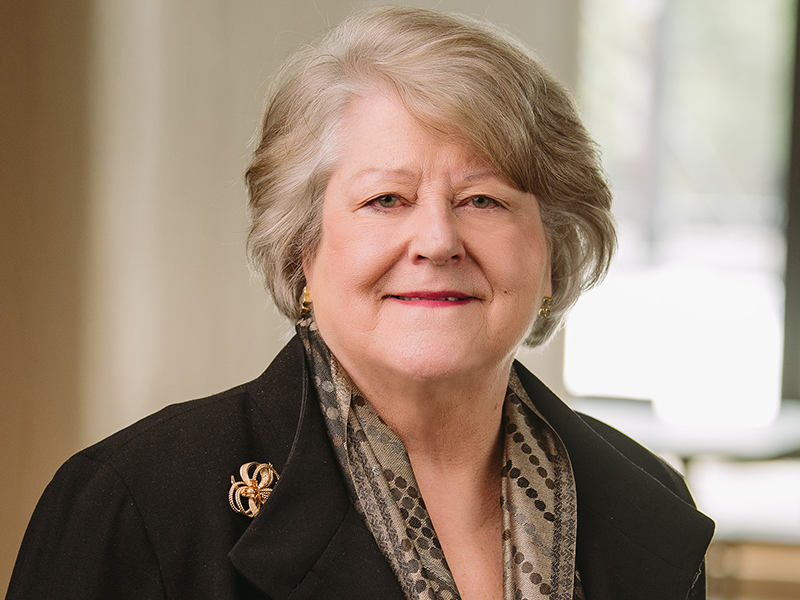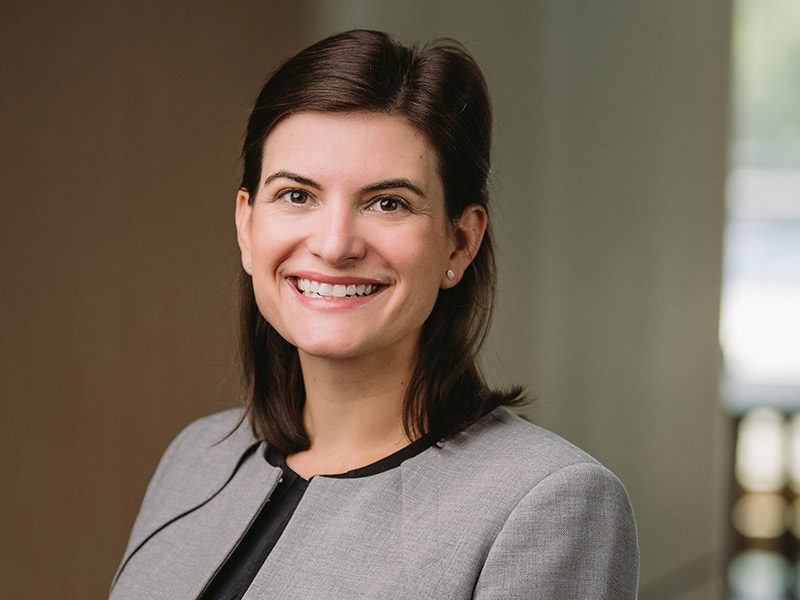Firm News, Community
Making it Rain: Elizabeth Van Doren Gray and Rebecca Laffitte
In the October issue of ABA Law Practice Today, Molly Campolong interviewed Betsy Gray and Becky Laffitte. The article, Making it Rain: Elizabeth Van Doren Gray and Rebecca Laffitte, reviews Betsy and Becky’s paths to becoming named partners, defining moments in their legal careers, and their experiences being women in the legal industry.
Molly Campolong (MC): What has been your path to becoming a name partner at Robinson Gray Stepp & Laffitte, LLC?
Betsy Gray (BG): After graduating from the University of South Carolina School of Law in 1976, I was employed by the Columbia, South Carolina law firm of McNair Konduros Corley Singletary & Dibble, and I was the first woman professional hired by that firm. They placed me in the litigation section. In 1982, I became the first female shareholder of the law firm. In 1987, I left the McNair firm with four other lawyers to establish my own law firm concentrating in litigation. Then in 2000, my partner Bobby Stepp and I joined forces and merged into another litigation law firm in Columbia, and the firm continued as Sowell Gray Stepp & Laffitte, LLC. Recently, through merger and other strategic moves, the firm now practices as Robinson Gray Stepp & Laffitte, LLC.
Becky Laffitte (BL): After 13 years with Nelson Mullins, where I began my legal career and was trained and mentored by attorneys recognized and respected for their litigation skills, I departed in 1996 with five Nelson Mullins partners to form a boutique defense firm, Sowell Todd Laffitte Beard & Watson. Without question, the experiences from my association with Nelson Mullins prepared me to make this courageous move at the age of 40. It was a bold step because I was leaving a partnership and firm which afforded me significant professional and personal opportunities and financial stability, and which I considered family (I still consider NM as family!). Another risk with my departure was potentially ending client relationships after years of establishing trust and rapport. This decision followed much prayer, contemplation, planning, and preparation. The logistics associated with forming a new law firm while maintaining a rigorous work schedule at Nelson Mullins were overwhelming at times. However, I felt an extreme sense of loyalty to my clients and Nelson Mullins, as well as to the formation of our new law firm. It was important to hold true to my values to ensure all obligations were honored, which equated to many long and stressful days and nights.
My second defining moment came several years into our new venture when we were fortunate to join forces with Betsy Gray and Bobby Stepp to form a new firm, Sowell Gray Stepp & Laffitte. At that time, my partners honored me by deciding that my name would remain in the new firm name, along with my partner and dear friend, Betsy Gray. Then and now, it is a rarity to find the names of two women in any firm name in South Carolina, except in women-owned firms. In my opinion, this speaks volumes about the integrity of the male members with whom we work who recognize our value to our firm, clients, community and legal organizations.
MC: Is there a defining moment in your legal career?
BG: Yes. I had the privilege of representing the House of Representatives and the Senate of South Carolina, along with my partner Bobby Stepp, in Abbeville County School District v. South Carolina, the education funding lawsuit brought by a number of school districts against the state, alleging unconstitutional funding for certain schools in the state. The trial spanned 101 trial days over 18 months and was the longest trial in the history of South Carolina courts. It was a tremendous challenge. Our involvement in the case lasted for 19 years, and ultimately the case was ended in 2018 by the South Carolina Supreme Court in favor of our position in the litigation. I realized the depth of the experience I gained in that representation, which extended over so many years of my career was invaluable.
BL: See the response to question 1, above.
MC: Is there a quality or habit that you believe most aided you in your success?
BG: It is hard to isolate a single thing that I have done that has dominated my manner of practice over the last 41 years. But I have always tried to treat each client’s matter as the most important that I have, and to show that commitment to clients. Similarly, I have strived to provide my clients with realistic and frank advice, rather than to tell them what they want to hear. Most clients want to believe that their case is strong, but not all are. Being candid with my clients is not always easy, but I believe it assists my clients in understanding the realities of their position. We are not just attorneys taking an advocate’s position. We are counselors and owe our clients that candor.
BL: I find a response to this question difficult, as “success” has many definitions and is perceived differently by each person. Success for me means holding true to my values—in and out of the office and courtroom—and in every aspect of my daily life. I don’t measure success in terms of financial wealth or in the number of defense verdicts I may have been fortunate to achieve for my clients throughout the years. Maintaining true to one’s virtues in everyday life is often more challenging than accumulating wealth, in my humble opinion. My patience is often tested after a long day in depositions when the witness has been difficult by not responding to questions; my civility is often tested when opposing counsel is being arrogant and difficult just for the sake of being difficult. My compassion is often tested when the witness is significantly exaggerating their injuries when there are no objective medical findings to substantiate their complaints of pain. However, I will not compromise my values for any professional or personal gain.
Since as litigators, we take the facts we are dealt and zealously represent our clients within the ethical bounds of the law, I have always tried to remain true to these values in my dealings with opposing counsel, litigants, and the courts. This has not always been easy. During my early years, I recall several incidents where male plaintiff’s attorneys tried to intimidate me during depositions through their objections, which were technically improper under the rules. I ignored their bluster, courageously forged ahead, and I don’t recall these antics having been repeated.
As I left every visit with my Grandmama Laffitte, she would lovingly remind me and all her grandchildren to “remember your name.” I also observed my parents’ strong work ethic from an early age, which was centered around high values, morals, ethics, and integrity. Faith and family were always front and center and have been my moral compass.
Last, but certainly not least, my family and friends have been unwavering in their support during this journey, at times to their detriment when I was unavailable for them because of a work commitment—which is priceless.
Read more at https://www.lawpracticetoday.org/article/elizabeth-van-doren-gray-rebecca-laffitte/


